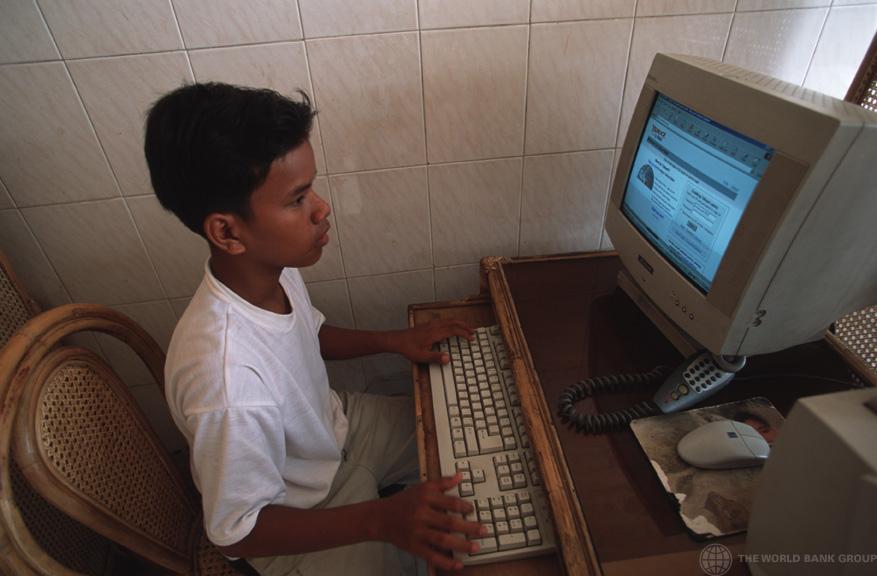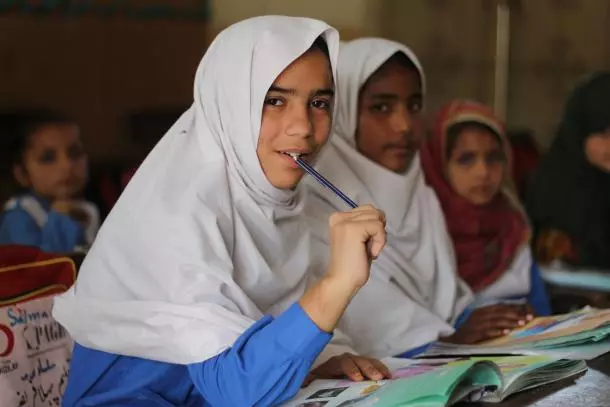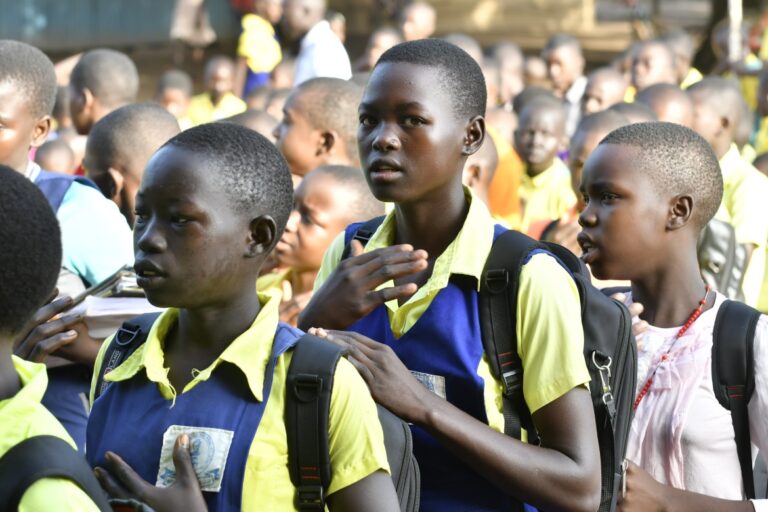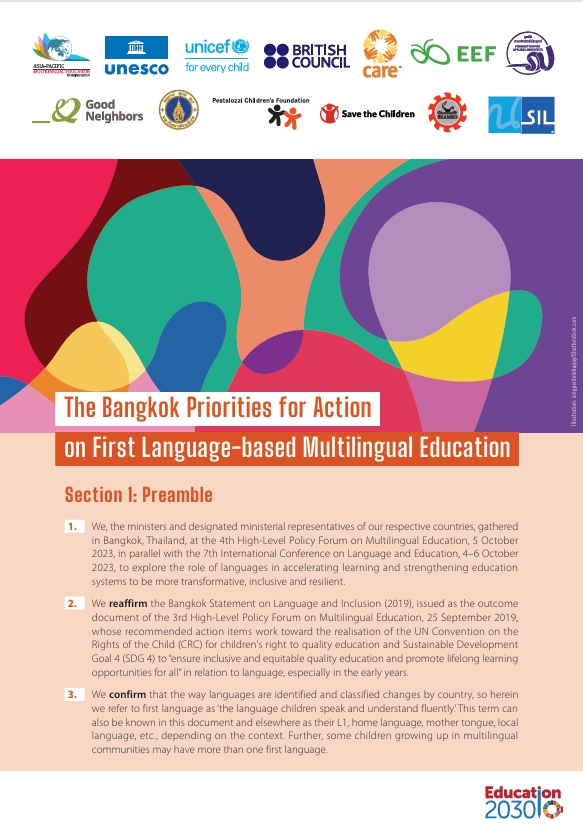Globally, tireless advocacy work led by practitioners of mother tongue-based multilingual education (MTB-MLE) is contributing to a growing understanding of the importance of children’s learning in their mother tongues. It has led to gradual change in education policy and programming to be more inclusive.
Despite these efforts however, it is estimated that 40% of children worldwide still do not have access to education in the language(s) they know best. In fact, this language barrier mostly impacts Indigenous and ethnolinguistic minority communities, especially youth, and their voices are not reaching the decision-making level of education policymakers.
As this year marks the halfway point to the Sustainable Development Goals for 2030 and education stakeholders at different levels in Asia and the Pacific reflect on progress made toward achieving inclusive, quality education for all, it is time to affirm the value of implementing MTB-MLE, especially for fostering better social cohesion in multilingual and multicultural schools and communities.
While traditional approaches to advocacy have worked toward convincing policymakers of the benefits of MTB-MLE programs and policies, a new approach utilizing online and social media in this digital era could serve to enrich advocacy efforts by engaging a wider audience and bridging the gap between minority communities and policymakers.
Amplifying marginalized voices through new media
While traditional mass media (press, TV) have been the only information platforms for decades, nowadays anyone can create and share ‘content’, such as your favorite fashion or restaurant.
Dr. Manoch Chummuangpak, Assistant Professor of Communication Arts at Dhurakij Pundit University and a UNESCO Member State representative of the International Decade of Indigenous Languages Global Task Force, suggests that ‘co-created’, user-generated content on social media can be a powerful advocacy tool for more serious purposes, and that adopting and implementing a new policy cannot be accomplished solely at the ministerial level.
Indeed, broader society needs to be actively engaged to help shape public perceptions and influence policy agenda priorities for relevant international and national causes, such as language advocacy and the positive impact of MTB-MLE on children.
Connecting affected communities to decision making through media
Online and social media platforms can be an innovative advocacy tool to connect directly with affected communities who are already using creative ways to tell their own stories. For instance, social media, videos and digital tools are significantly used in the Indigenous youth advocacy movement.
TikTok has become a significant platform for Indigenous youth in North America to express and promote their languages and culture. Also, in Cambodia, Indigenous youth are learning how to use wiki tools and platforms to create an Indigenous Audiovisual Archive.
Using social media may seem informal compared to other forms of media and advocacy. Yet, these unique and innovative platforms allow enthusiastic Indigenous and ethnolinguistic minorities, particularly youth, to capture the importance of their languages and culture from their daily life by encompassing their perspectives and preserving languages for wider audiences.
Suraporn Suriyamonton, Country Representative for Pestalozzi Children’s Foundation in Thailand, supports this as creating a robust network with and among the affected is vital for a better understanding of MTB-MLE and its impact on children and society.
This new type of advocacy is only possible thanks to the increased availability and affordability of communication and digital media technology, but access to digital technologies is a significant issue among ethnolinguistic communities. Addressing this issue is critical in advancing MTB-MLE advocacy and requires uplifting the voices of affected communities to the decision-making table.
Working in tandem with governments, international organizations and local communities
Social media and its combination with traditional media can make a big push as an awareness-raising strategy for MTB-MLE advocates and practitioners, yet the impact can be temporary.
Linh Anh Moreau, a consultant at UNESCO Bangkok and a coordinator for activities related to the International Decade of Indigenous Languages 2022–2032 for Asia and the Pacific, stresses that for sustainable and tangible impact, advocacy has to be in tandem with government efforts to ensure the inclusion of MTB-MLE from early childhood and throughout schooling, for safeguarding and revitalizing languages in the long term.
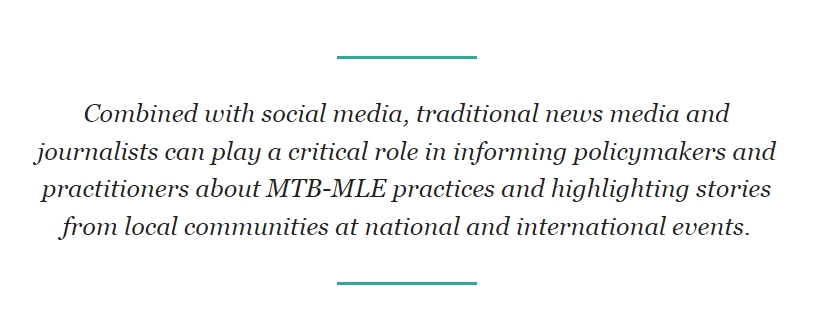
This will further influence policy adaptations and widely share the importance of holding countries accountable for inclusive and quality education for all.
Sustainability is key to inclusive education for ethnolinguistic minority children
The 2nd Asia-Pacific Regional Education Minister's Conference (APREMC-II) will be held on June 5-7, 2022 under the theme of "Education Recovery and Transformation towards more Responsive, Relevant and Resilient Education Systems: Accelerating progress towards SDG 4-Education 2030".
One of the critical areas of the conference is equity, inclusion and gender equality, including children from ethnolinguistic minority communities.
APREMC-II will be an excellent opportunity for national delegations and MTB-MLE practitioners to exchange ideas and encourage accurate understanding of multilingualism and multilingual education as a critical component in achieving SDG 4, especially during the public, hybrid MTB-MLE side event on June 5, 2022.
To support MTB-MLE, a high-level conference will not guarantee immediate changes in government policies and people's perceptions. Digital media can be a powerful advocacy tool to engage audiences beyond traditional boundaries, and working and influencing both inside and outside of the conference.
As we prepare for high-level events such as APREMC-II and the International Decade of Indigenous Languages, it is time to utilize online and social media to foster a better understanding of multilingualism as an invaluable tool for sustainable development and our education systems and societies.

